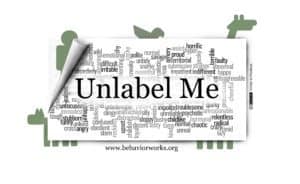I hear a lot of stories in my line of work.
“My dog bit out of nowhere, he’s aggressive”. “He was barking and lunging like a maniac for no reason”. “She knows she shouldn’t do it and looks guilty afterwards but she still does it”.
In that moment your dog goes from being your best friend to your adversary, depending on what happened maybe he’s guilty of trying to hurt you, on purpose, pre-meditated even. He broke your trust. He is unpredictable, uncontrollable, and then my personal favourite, dominant.
You are lucky though, because it seems everyone is ready to dispense training advice. You need to make sure he knows who’s the boss, she’s doing it to spite you because you left her at home, so you need to punish your dog somehow, through a “correction” via a collar on his neck, or pinning him to the floor, or spraying him, or shocking him, or any number of ways us humans have devised to tell a dog he’s wrong.
Words matter. They set the scene, they influence our emotion about the story they are used to tell. They label.
The dog is aggressive, is a maniac, is guilty, knows better. When we use terms like these and label our dog we take away the opportunity for change. We tell him what he is, we pigeon hole him.
I’m pretty sure my Mum would still call me shy, she has for as long as I can remember. It describes my behaviour as an absolute never changing thing, and that’s just not true. Sure in some circumstances I may not talk much and prefer to sit on the sidelines and watch rather than participate – but only in some circumstances. In others – well here I am writing away shouting out my views to the world (or the few that are reading this anyway), I teach classes and private clients, I used to do many presentations on a weekly basis for work, including tough sales presentations to what is generally a critical and not entirely welcoming audience (engineers are not known for warm fuzzy social skills, we’re nice people but we like stuff to be *right*). As a teenager I travelled alone to various RAF stations for work experience and to the officer and aircrew selection centre, I even completed a flying scholarship, and that’s not even including the activities I did as an air cadet. At an even younger age I was normally in the school play each year, I was even the lead violinist in a youth orchestra. I’m pretty sure none of these things would be considered something a shy person would do. But I did them and I do them, I even enjoy them! To write me off as shy makes the assumption that I won’t be able to do certain things, that I will forever be shy.

Labels can be useful, they are a shorthand for a set of behaviours and save us from saying things like “my dog will growl, bark and lunge” every time we want to talk about it. We can agree that we will use the label aggression for “growl bark lunge”, what we can’t say is “my dog is aggressive” – there is always a when that must come after. He isn’t aggressive all the time, it’s under specific circumstances and only at the moment. Behaviour is changeable.
To quote the incredible Dr. Susan Friedman “Behaviour is not who you are, it is what you do”
Our labels also do something else though, which I think in some ways is worse. They set us up as an opponent to our dog, they make him the bad guy, and as we all know the bad guys should be punished. As humans we really like the concept of punishing stuff we don’t like, and we think of it as punishing the person (or the dog) too and not in terms of the behaviour. It’s a sucky place to be in, for you and your dog, you’ve placed yourselves on different teams working against each other.
It doesn’t have to be that way. If we stop labelling, we take out the emotion and we can look objectively at what our dog is doing and when. Then we can come up with a plan to change it and use behavioural science to help us.
To save you the job of having to learn all the science though – get help. So if you are finding you are labelling your dog and you’re tired of being on different teams. Get in touch. I’ll put you on the right track so you can start working together again.
